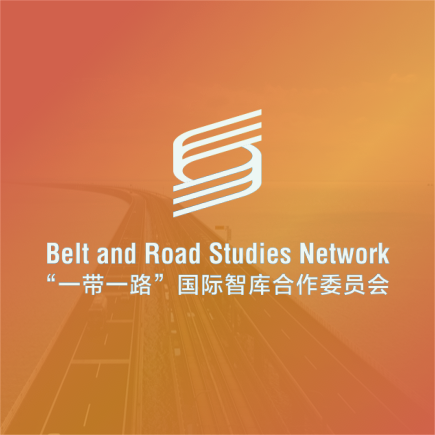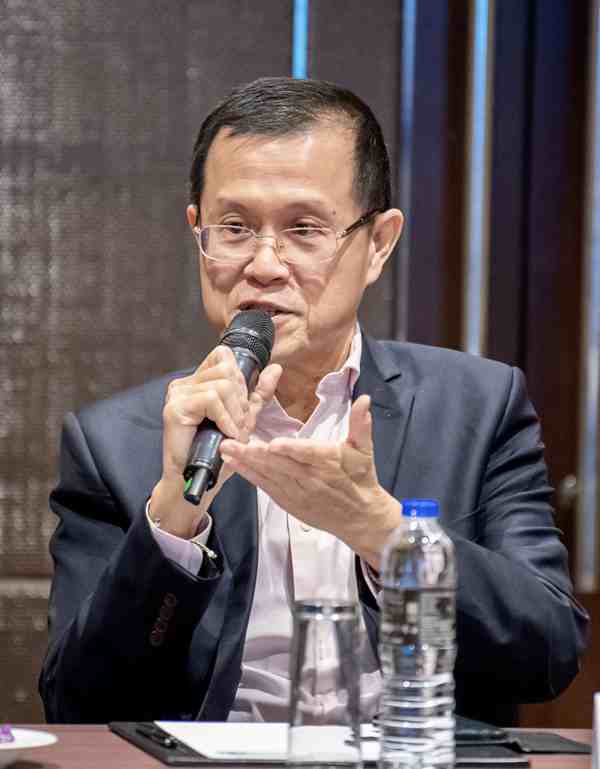

ONG TEE KEAT. Chairman, CNIA.
Connectivity is now the buzzword in today’s globalized world. The advancement of science and the rapidly changing innovative technology in this digital age have made the various forms of physical connectivity possible.
"Physical connectivity " enabled human interaction across geography.
Over the centuries, our means of physical connectivity have evolved from mere basic roads and bridges to the more sophisticated rail, undersea tunnel, air and maritime logistical links that are prevalent today.
Indeed, infrastructural connectivity is key to overcoming the economic disparity separating the resource-rich states and the less-developed countries.
Traditionally, infrastructural development in less developed remote areas has often been regarded as merely a social obligation and is not market driven. But the conventional Chinese wisdom puts it that " If you want to get rich, building roads first ".
In the contemporary perspective, infrastructural development can be made an economic catalyst for the remote hinterland, as in the case with the High-Speed Rail Connectivity in China. These criss-crossing railway networks have generated economic growth to the most remote area simply because connectivity enhance accessibility.
The world has never been a level playing field for all nations of various ethnicities, religions, civilizations and political systems.
Since the inception of globalization in the 1990's, economic disparity between the rich and poor nations has never been more pronounced. Undeniably, lack of connectivity is one of the contributing factors. If left unchecked, the poor and the weak nations are destined to become even more vulnerable, as they face the onslaught of new global concerns.
Drawing from 2 decades of globalization experiences, trans-boundary trade and investments had been extensively promoted in the name of multi-lateral free trade. But these are implemented with strait jackets rules and interpretations, as dictated by the developed nations’ unipolar geostrategic influence and security concerns.
Progress and prosperity that free trade promised remain alien to the poor and weak nations so long as they are deemed strategically insignificant or irrelevant.
A level playing field remains a Utopian dream, and these small states have virtually little or no say at all in shaping the ground rules of globalization. This conspicuous absence of inclusiveness has given rise to an increased expression of nationalism within the global order.
At the same time, international institutions tasked with addressing prevailing global concerns, such as climate change and sustainable development have, often time, found their effectiveness undermined by the dominant powers’ recalcitrant defiance of existing rules.
In certain cases, the latter, in sheer arrogance, even chose to withdraw completely from these world bodies. In short, the tools for global governance have over the years been reduced to mere pawns, even lame ducks, by the whims and fancies of the hegemonic unipolar powers.
Against such a gloomy backdrop, where the current international order has proven ineffective in addressing an ever-increasing list of global challenges, the clarion call of China for the pursuit of “Human Community with The Shared Destiny” through the implementation of BRI is no doubt a "game changer".
From this Chinese perspective, multilateral engagement and connectivity remain relevant but globalization will turn a new page, evolving into a new phase of addressing global concerns.
All nations, big and small, rich and poor alike, under their respective administrations and polity, must acknowledge that the fate of humankind, regardless of ethnicity, religions and nationalities is now at stake.
In other words, global exigencies such as climate change, trans-border terrorism, deadly epidemics, just to name a few, have bound the human destiny into one. Therefore, we must address our shared destiny through concerted, unified effort, as one globalized human family. The desire for oneness brings to forth the imperative for INCLUSIVENESS.
Physical connectivity, made possible by advancement in science and technology, provides the means to promote INCLUSIVENESS. Nonetheless this would not be complete without the constructive people to people connectivity.
Today, we may have extensive people to people contact. But these engagements are still quite superficial, and often characterised and tainted by prejudice, ignorance and sense of superiority.
In the push to address the shared destiny for humankind, basic steps such as building mutual understanding, trust and respect must first be established through consistent and pervasive cultural exchange and civilizational engagement.
Our global village has become ever more heterogeneous and culturally diversified. The fast-changing geopolitical and geo-economic dynamics have presented to us an increasingly multipolar, yet economically unified world order. The continuous imposition of prescribed values by dominating powers with little regard for cultural diversity and autonomy is bound to alienate them from the rest of the human community.
While physical connectivity such as infrastructural, digital and logistical connectivity are crucial in bridging the developed and the undeveloped countries, the latter's social aspirations and cultural dignity must always be given due respect and consideration.
This applies to all trans-border connectivity, the BRI included. The sponsoring countries, from their positions of strength, must take the lead in advancing an inclusive realization of humanity shared destiny, and not merely be fixated with their own national or security interests
In this regard, the Belt & Road Initiative (BRI) is an exemplary model of how trans-border connectivity can be promoted based on multilateral consultation rather than unilateral imposition of rules, with an inclusive consideration of cultural values.
As the initiator of this masterplan, China is likely to see its geostrategic influence grow across the region. This is one of the benefits that China would gain as it proactively seeks to build a human community with shared destiny, in face of growing global concerns. This stands in stark contrast to the arm-twisted conditionalities imposed by the prevailing unipolar powers upon the less developed world.
We are now at the dawn of a new era of global governance. This new era, or shall we call it, "globalization 2.0 " is not the replacement of the current unipolar power with another unipolar power. Nor is it the displacement of one civilization with another civilization. Rather, it should be a new era of open multilateralism, of inclusiveness and co-existence, with countries pooling their resources and efforts together to address global exigencies.
For the past two decades, "multilateralism" has been a trendy catchphrase synonymous with globalization. But this should not be interpreted in narrow economics terms. Instead it should be embracing the multi dimensions of human endeavours. On this account, people to people connectivity through civilizational engagement and cultural exchange is central to any meaningful multilateralism.
This is a prerequisite, as we strive for a viable model of global governance for the human community. This must be promoted as the preferred alternative to the prevailing tendency towards civilizational estrangement. And to replace the present-day conflict ridden, zero-sum approach with civilizational interaction guided by a spirit of mutual learning and harmonious co-existence.
ONG TEE KEAT
Chairman, CNIA.
12 August 2019, Kuala Lumpur
今年1月,新冠疫情突然而至。为了防止疫情扩散,我国采取了史无前例的交通阻断及人流限制措施,这也为我国农业农村经济发展带来了巨大挑战。